
PRESIDENT MUSEVENI COMMITS SHS5BN TO CREATIVES, URGES YOUTH TO JOIN POVERTY FIGHT AT JAZZ WITH JAJJA SECOND EDITION
President Yoweri Kaguta Museveni and the First Lady, also the Minister of Education and Sports, Maama Janet Kataaha Museveni today hosted the second edition of Jazz with Jajja at their Kisozi farm in Gomba District. The event brought together a number of content creators, journalists, digital entrepreneurs, and social media influencers for a deep reflection on Uganda’s economic transformation and national values. Before the formal discussion, President Museveni took the youth on a tour of his farm, showcasing his herds, including Ekyigondo, now numbering over 700 cows originally belonging to his late mother, Kokundeka, for ghee production. He emphasized the importance of preserving the legacy of forefathers and passing it on to the next generation. The Ranch Edition, coordinated by Mrs. Natasha Museveni Karugire, brought together young Ugandans, many of whom shared stories of rising from difficult beginnings through digital enterprise. The inaugural edition took place on January 4, 2026. During the meeting, President Museveni also pledged Shs5 billion in support to organized content creators, describing them as an important layer in Uganda’s evolving economy. Responding to a request from YouTuber Isaac Katende, popularly known as Kasuku, on how digital influencers can formally collaborate with the government, the President described the sector as a modern evolution of traditional advertising. “What you are talking about is not something new. In the past, companies spent money on television and radio advertising. Now a layer of operators has come up using social media as an easier way of communication to package and present products to consumers,” he said. “If you are organized, we shall support you. If it is a combination of sales and entertainment, that is fine. I am glad to see our young people putting up that layer of promoters. We shall support you both in improving communication technology and operationally.” President Museveni also underscored the contribution of content creators in the new economy. “You are adding something different. It used to be an advertisement on radio and television. Now you have used the internet to combine celebrity with promotion and link it with other sectors.” He framed the discussion within what he called Uganda’s “whole battle”, moving citizens from poverty into productive economic participation. “I have heard that many of you were born in difficult circumstances. There are many like that. The question is: how can the country deal with that?” he inquired. The President explained that the government's long-standing strategy has been to involve as many Ugandans as possible in the four wealth creation sectors. “Now about 70 percent have joined the money economy. Those will help us deal with the remaining 30%. In this new kisanja, we must fight poverty because poverty is the biggest problem,” he said. He emphasized that financing has been deliberately taken closer to citizens through the Parish Development Model (PDM), Emyooga, ghetto funds and boda boda funds. “We have made sure the money is near the people. PDM is in the parish; in towns it is in the wards. Go and join the SACCOs. They are open to everyone above 18 years.” He revealed that the government injects Shs100 million per parish annually totalling Shs500 million per parish over five years, creating what he described as “parish banks.” For creatives specifically, he confirmed direct intervention. “For the creatives, we are going to put money in your own SACCOs. We already have billions with the musicians. Now we are supporting you as well.” He reiterated that science and technology remain the primary drivers of transformation. “The primer of change in human society is science and technology,” he said. “Without it, you cannot transform society.” He concluded by thanking the organizers. “I thank Natasha for coordinating you and bringing you here. I thank Maama for coming to support me at this event. God bless you all.” In her comprehensive address, Maama Janet urged young Ugandans to rediscover their identity, embrace faith and take responsibility for transforming their country. “It is important that we celebrate being Ugandan. Africa has failed to develop because it always looks to other countries to develop it, to change it or to do things for it, yet there are jobs here.” She expressed concern about young Africans risking their lives abroad while opportunities exist at home. “We must start by being proud of being Ugandan. All the other things will come from knowing that Uganda depends on us to develop it,” she said. Maama Janet cautioned against identity erosion, urging young people to value who they are and where they come from. “When you see Ugandans trying to change themselves to look like others, just think,” she said, emphasizing that confidence in national identity is foundational to transformation. On education reform, she spoke at length about Uganda’s new competency-based curriculum, describing it as a shift from passive learning to active engagement. “Our young people now enjoy being in class, asking questions and doing their own projects. Teachers are becoming facilitators. Education should liberate, not keep us captive.” She also contrasted education rooted in colonial philosophies with an approach that empowers African identity and critical thinking. “When you educate a person properly, you liberate your country,” she said. The First Lady further highlighted the government's growing investment in sports, noting that structured planning has replaced past improvisation. “In the past, students would go for national competitions without accommodation or food,” she said. “Now we plan. We select which teams to fund as a nation because we cannot fund all at once.” Although the national budget must address multiple priorities, Maama Janet assured participants that sports development is steadily improving as resources increase. Drawing on faith, she encouraged discipline and purpose. “Before you were in your mother’s womb, God knew you. Those who discipline their lives will fulfil their purpose.” She urged the youth to reject divisions based on tribe or religion and to work together. “If we hold hands as Ugandans and work together, our country will be unstoppable.” Among the participants was Ms. Jackie Arinda, a young entrepreneur who runs a coffee business using social media platforms. “I sell my coffee on TikTok, X and Instagram,” she said. “I go to the roastery, roast my coffee, take it home and market it directly on my social media platforms.” Ms. Arinda noted that digital platforms have enabled her to reach customers beyond her immediate location and build a brand without relying on traditional distribution channels. She added that she had previously benefited from the National Social Security Fund (NSSF), which helped strengthen her financial footing. However, she raised concerns about skills gaps and emerging technologies. “What policy changes can enable Ugandan businesses to use new technologies like AI and drone systems?” she asked. “As much as we advertise, we are not yet skilled to the required standard.” In response, President Museveni welcomed the innovation demonstrated by young entrepreneurs. “We shall support you to continue improving the technology of communication and also give you operational support,” he said. Delivering a vote of thanks, Ms. Pamela Ankunda said the central message of the engagement was patriotism and strategic security for Uganda and Africa. “The biggest takeaway is the love of Uganda and the strategic security of Uganda and Africa,” she said. “When you love Uganda, you understand that this event was teaching us the values of our country.” She thanked the First Lady for being “a woman of faith and valor” to the women of Uganda, recalling her declaration in Karamoja that the region would grow its own food “not by anyone’s power, but by the mighty power of God.”

.jpg)
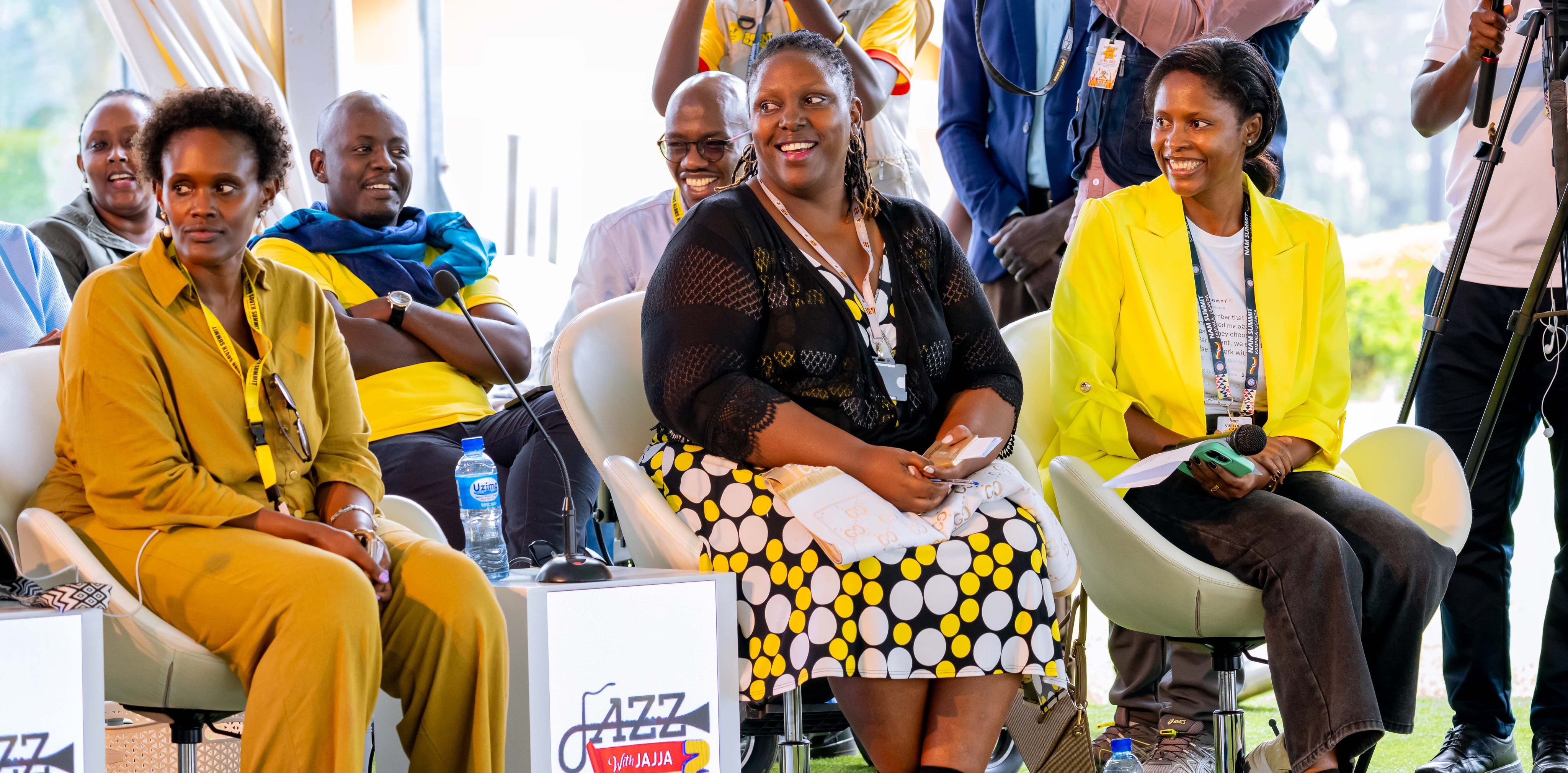
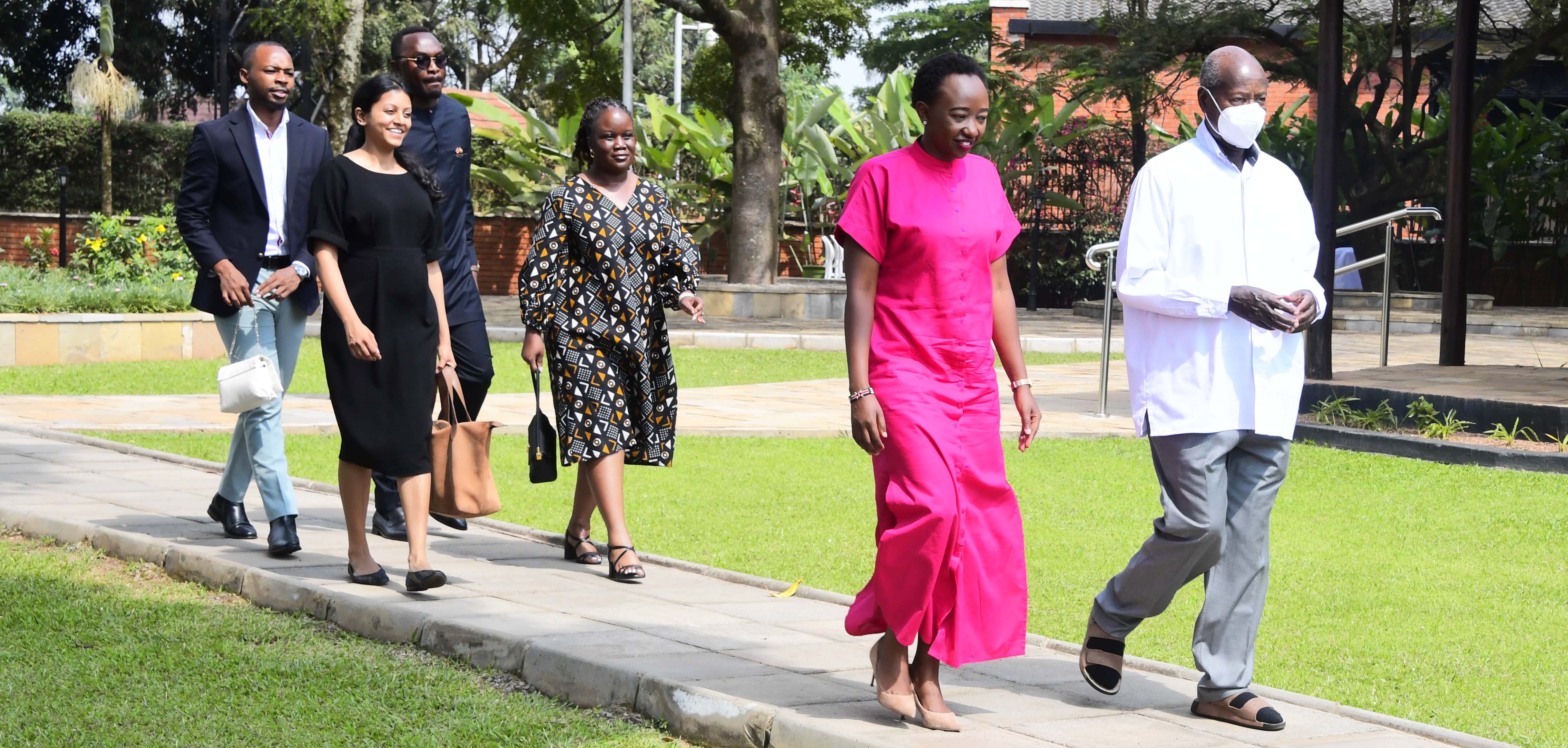
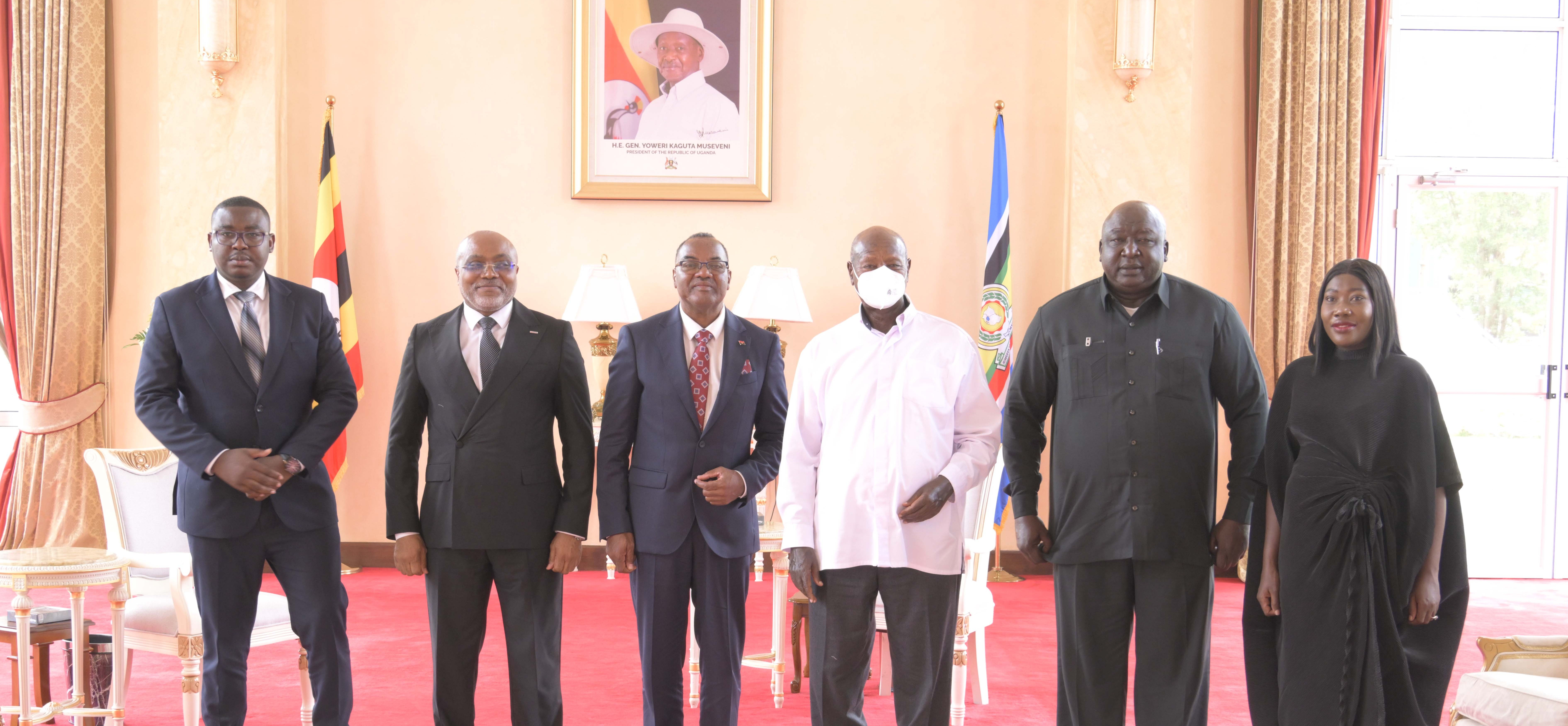
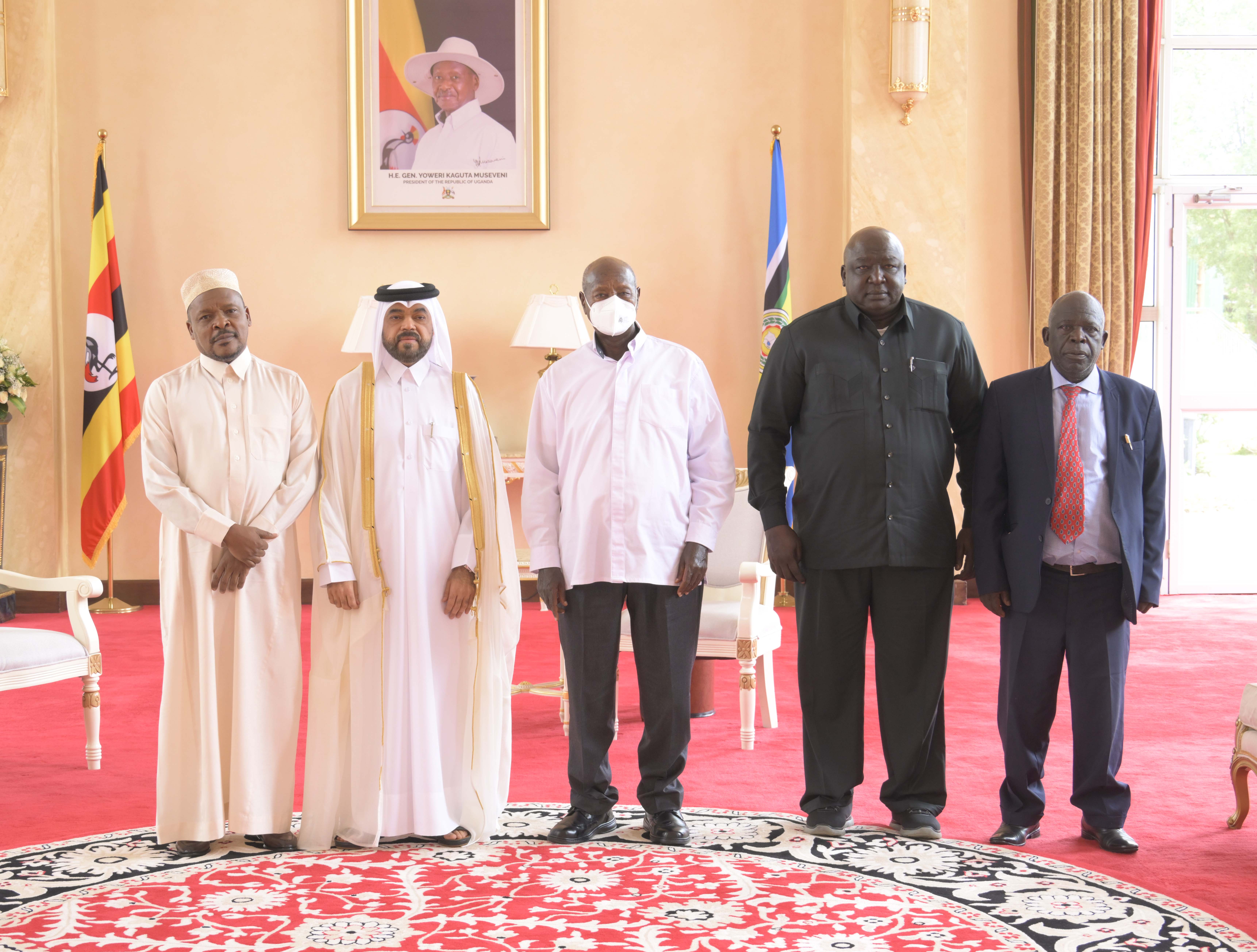
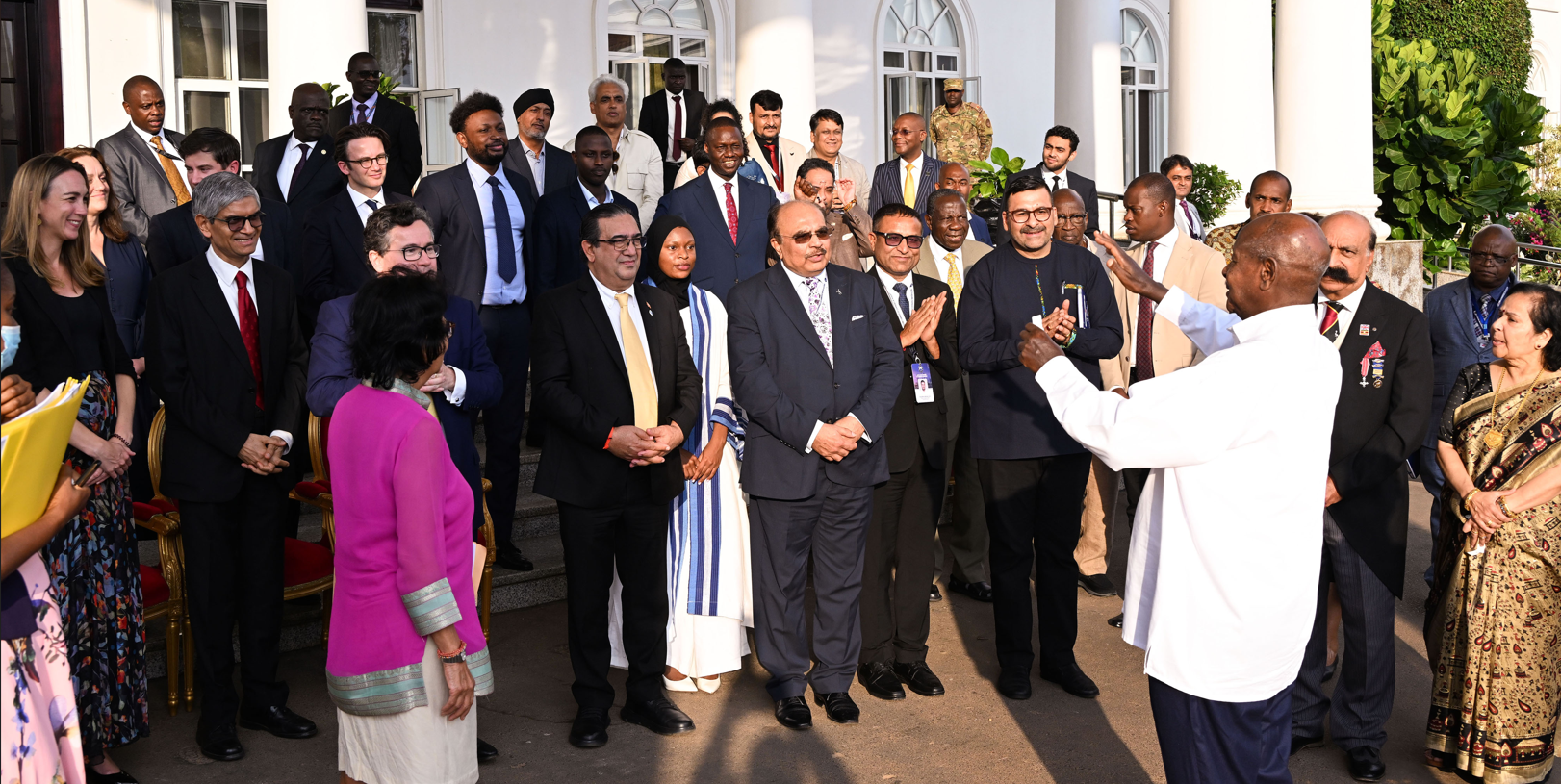
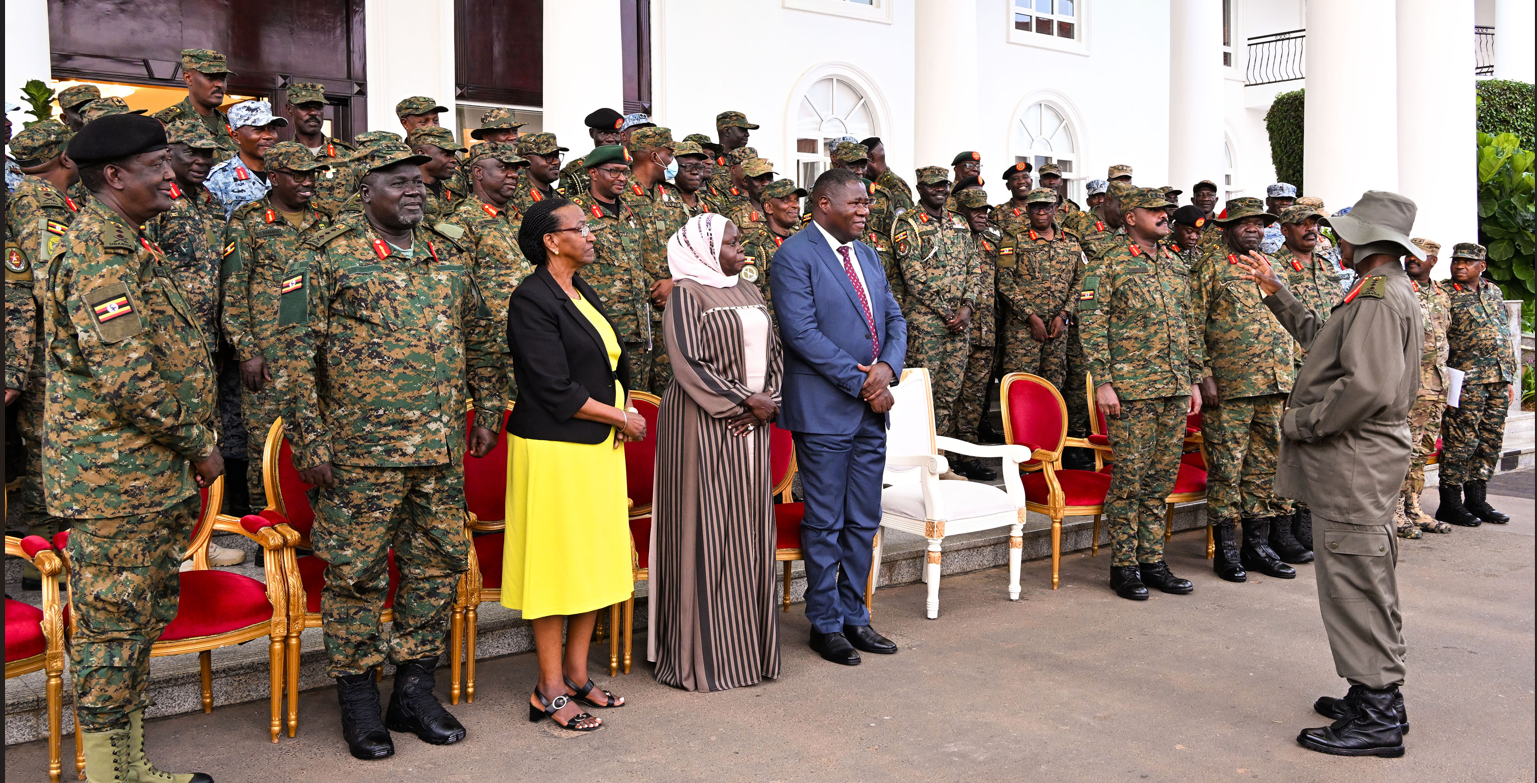
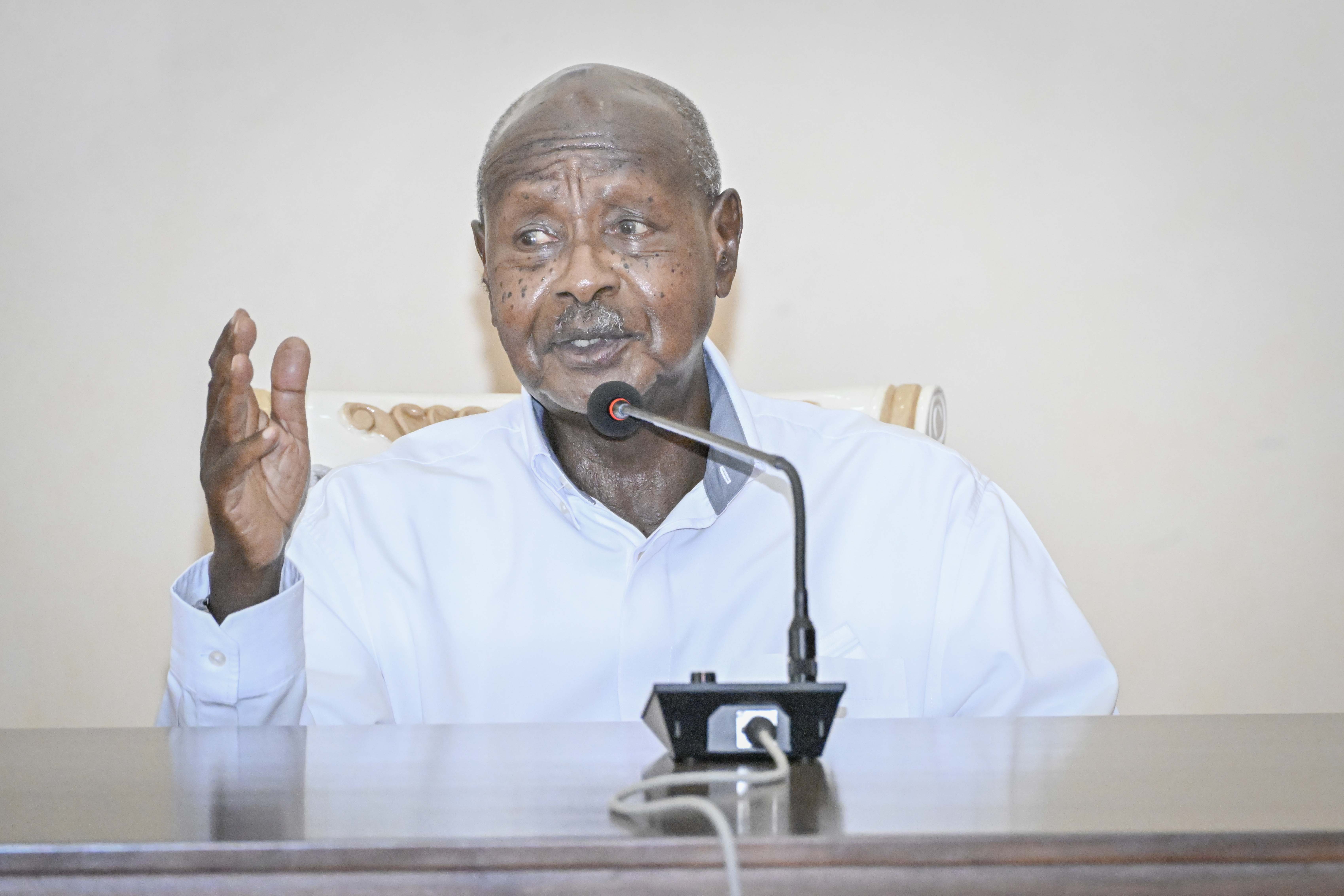
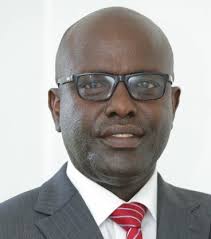
.jpg)



